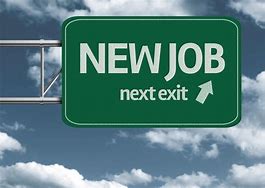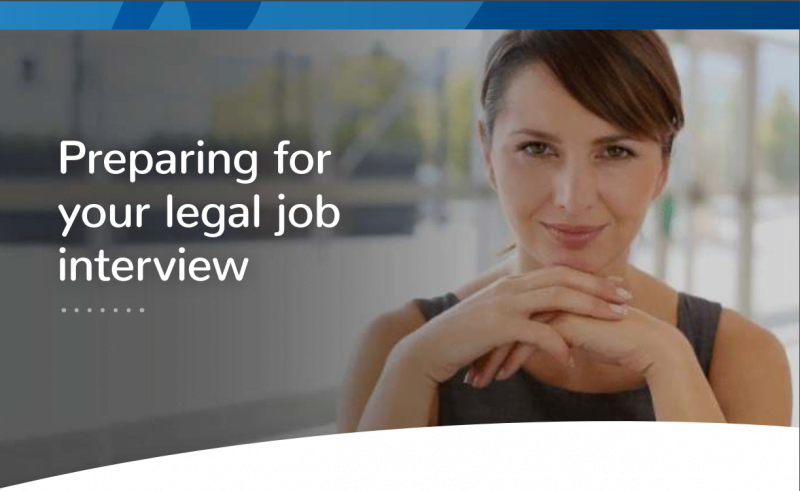Tricky Questions Reign in Behavioural Interviews

Tricky Questions Reign in Behavioural Interviews Adapted from Arlene Hirsch From the NATIONAL BUSINESS EMPLOYMENT WEEKLY From the publishers of the Wall Street Journal: Dow Jones & Company Inc. Most interviewers routinely include several behavioral questions along with more standard general questions. Their goal is to make sure they don’t hire a candidate who can talk a good game but can’t deliver a great performance. Built on the belief that past performance is the best predictor of future success, this interviewing style relies more on specifics. Questions usually begin with such phrases as “Tell me about a time when…” or “Give me an example of…” Interviewers who favour this format usually develop their line of questioning around the traits and skills deemed important for success in the position or organisation. For example, if a job involves a lot of client interaction, an interviewer might ask you, “Tell me about a time when you had to handle an irate client.” For a position that requires extensive teamwork, you might be asked to “Give an example of a situation where you demonstrated your skill as a team player.” Preparation Knowing how interviewers structure their questions makes it easier for you to prepare good responses. If an interviewer prepares by reviewing the job description to determine a job’s required skills and traits and asks for specific examples that demonstrate those characteristics, you need to go through a similar preparation process. Job descriptions for a specific position or function can help you prepare for behavioural interviews. If an employer wants someone who’s a “team player,” you can expect to be asked some of the following: “Tell me about a time when you had to rely on a team to get things done.” “Provide an example of a time when you had to persuade people to do something that they didn’t want to do.” “Give me an example of your leadership style.” Candidates who understand the technique and are prepared to handle these types of interview questions have an edge over those who are unaware of this technique. Start With Your Resume An easy way to start preparing for behavioral questions involves resume review. By going through your resume line-by-line (in search of relevant examples), you’ll become comfortable with how you plan to answer likely questions. The less confident you feel about a specific circumstance or qualification, the more you need to prepare and rehearse your response. “The idea behind behavioral interviewing is that you can tell much more about a person’s attitudes, work habits and skills by hearing them describe real actions taken in real circumstances than by letting them speak in the abstract about themselves,” says Allen Salikof, president of a US-based search firm. Expect interviewers to ask negatively phrased questions that reveal your weaknesses and flaws as well as your strengths. Don’t fall into the trap of demeaning yourself just because you’re anxious to comply. If the stories you tell don’t reflect positively on you, there’s no reason to tell them. A Three-Step Approach Some candidates find the format of behavioural questions unsettling. In the pressure of the moment, they can’t think of a single example. To overcome that obstacle, develop a list of experiences that cover the skills and characteristics required for the position you seek. Try the following three-step approach: 1. Determine your chief skills or strengths and actual experiences which exemplify each one. Remember dates, names, achievements and other details that will convey the situation to the interviewer. 2. Understand the job’s description and be prepared to recall specific actions and behaviours that address the required skills. 3. Don’t make vague proclamations of your skills. Small but telling actions and behaviours are more important than grandiose but unsubstantiated claims of job success. Structuring Your Stories It helps to use a P-A-R (Problem-Action-Result) formula to structure your stories. Review your resume and decide which stories to tell. Some candidates even write, edit and rehearse their stories. This is time-consuming but can be worth the effort. Since most people aren’t natural storytellers, it’s good to know what you plan to say and how you plan to say it. That way you minimise the risk of drawing a blank, telling the wrong story or rambling. Try not to sound wooden or rehearsed. To put a unique spin on the P-A-R format, try a R-A-P format. Start with the result, because accomplishments capture an interviewer’s attention. Then describe the actions you took and finally, the problem that was solved. In that way, your accomplishments stand out boldly. If you’re really savvy, you can vary your approach by using both strategies within the same interview. For example, if you’re describing a tough problem, you might want to use the P-A-R approach to emphasise the very real challenge you faced. If you achieved a particularly spectacular end result, you might want to use the R-A-P format, which emphasises your results. When You Don’t Know the Answer Behavioural-based interviewers can be like bulldogs. They won’t give up until they get the information they want. But you don’t have to answer a question just because it was asked. At times, you really won’t have the answer. Much as it may hurt to say, “I’m sorry but nothing comes to mind,” that may be the most honest answer. Rather than lie, you’re better off being honest about what you have and haven’t done. You also can ask for clarification. If you don’t understand what the employer is looking for, ask him or her to be more specific. Most employers will appreciate your interest and thoroughness. Although silences can be uncomfortable, they also can be productive. Rather than rush into an ill-advised statement, make sure that you’re in control of your response. If this takes more time, the interviewer will need to wait. Most interviewers will appreciate your thoughtfulness. Strategizing Behavioral Questions Behavioural questions pose a real challenge to interviewees who are striving to make the interview a conversation between equals rather than an interrogation. This isn’t
Elias Legal Jobs Index Q1 FY22

I am writing this just coming out of 107 days of lockdown in Sydney so how the potential new outbreak affects business confidence is an unknown. Most lawyers I am speaking to are still very bullish and aggressively hiring across most practice areas and levels. We are starting to find face to face interviews are coming back. Most firms are still working partly remote and partly on-site. There is a particularly positive response from junior lawyers who have missed out on face to face mentoring and learning from being in and around other professionals in an office setting. Some lawyers are actually meeting colleagues for the first time, as they have worked with the firm for months remotely. It is clear that things will not return to the pre-covid normal. The firms that insist on full-time back in the office are at risk of losing talent to competitors offering greater flexibility. Salaries are also on the rise as demand outstrips supply of experienced legal talent. The COVID outbreak has indeed changed us on so many levels and it has pushed us to accept a completely new version of our day to day lives. The last two years have profoundly influenced the way we work as well with more companies adopting the hybrid approach, allowing employees to work part-time from home. With everyone coming back to the office, another question rises: Mandatory vaccination or not? This will be an interesting topic to keep our eyes on. According to the Jobs Index from last quarter, other than interviews being postponed or moved to zoom the following trends have been observed: Biggest jump in roles are corporate and M&A Double the number of tax roles 50% increase in litigation and dispute resolution roles 27%- 30% increase in insurance/reinsurance roles and real estate 18% increase in banking and finance roles there was a slight decline in technology, employment and personal injury roles family roles decreased by 62%. The main levels of hiring were at the director/partner level with a 125% increase and with a 66% increase in graduate/entry roles. If you have questions about the market or salaries please contact Jason Elias on [email protected] or 02 9555 5711. Jason Elias is the Founder and CEO of Elias Recruitment, a boutique legal recruitment consultancy that specialises in finding lawyers for law firms, NFPs, and corporate in-house teams. JOBS INDEX Q1 FY22 Area Banking & Finance Q4 FY21 56 Q1 FY22 66 % change 18% Corporate / M&A 65 93 43% Employment 41 37 -9% Family 8 3 -62% Insurance / Reinsurance 33 43 30% Litigation / Dispute Resolution 50 75 50% Real Estate 65 83 27% Regulatory 22 16 -27% Personal Injury 53 47 -11% Insolvency 5 4 -20% Tax 6 13 116% Technology 37 35 -5% TOTAL 491 515 5% Seniority Q4 FY21 Q1 FY22 % change Department / Div Head 7 4 -43% Director / Partner 4 9 125% Graduate / Entry 6 10 66% Junior Associate / Manager 74 61 -17% Mid Associate / Manager 298 373 25% Snr Associate / Manager 220 225 2% Methodology: the Elias Legal Jobs Index is based from sample data extracted from Sydney and Melbourne law firm advertisements.
Getting Candidates to Say Yes during Covid

After 21 years of recruiting, one of the most frustrating discussions is having to tell a client that the candidate has knocked back their offer. You get to the end of the process after numerous interviews and meetings and discussions and then find out that you are back at square one. Now, in a competitive market, it is understandable that good candidates may have multiple opportunities but what is unforgivable is when the candidate knocks back the offer for reasons we can control, namely the recruitment process itself. Here are five easy ways to minimise the chance of clients rejecting you: Understand the market It is a candidate-short market. The borders are closed, there are few active candidates, risk-averse lawyers are reluctant to leave safe roles. The bargaining position that was with employers a few years back has switched. You need to appreciate that candidates are in demand and court them. While we know you think your firm is the best in town, unless you have the brand equity of Apple or Amazon, candidates may not have the same perception. Interviews We get that face to face interviews are preferable to video ones but, in most of Australia, virtual interviews are now the norm. There is no point using old-world pre-Covid thinking when scheduling interviews. There is no slinking away from the office during lunches, candidates are more in control of their time. If you like a candidate you have two choices, see them quickly and lock them in or delay unnecessarily and wait for other opportunities to compete with yours. Once a candidate is on the market they will rarely look at just one role. Just like clients rarely want to see only one candidate. If you need more than 1 interview (we suggest two minimum) then why not do it back to back. Meet with stakeholder 1 for 40 mins and if things go well, then bring in any other decision-makers. There is no rule that says interviews must be on different days. In this market, second interviews should take place no longer than 48 hours from the first. I know you are busy but if you don’t hire someone you will be even busier. What is the purpose of interviews? Pre-Covid interviews were mainly about assessing the skills, experience and attitude of the candidate. The interviewers also have another job and that is selling the benefits of the role to the candidate. Your competitors will be doing this so unless you want to try recruiting with one hand behind your back, you should follow suit. What is your firm’s Employee Value proposition? What benefits do you offer – phones, insurance, gym membership, additional leave and parking are now more common. The key will be flexibility and work from anywhere. Companies that impose a blanket return to the office full-time rule will struggle to attract candidates in a post-Covid marketplace. Tell the story of why your staff like working with you, how you looked after them during the pandemic, how their career will grow at your firm. Make them feel valued, not a robot that churns out billable hours. Gamesmanship / Gameswomanship There is nothing better than feeling like you got a good deal – particularly when it comes to buying a T-shirt in Bali. Bargaining on salaries, however, is fraught with danger. Make sure you offer a fair market salary to prospective candidates. Gain access to independent surveys based on real data (eg ALPMA’s salary survey) and work out what is fair. You should also consider what the candidate is currently earning and the psychology that people generally like to step up if they take the risk of a move. Recruitment is just the start As Rick says to Captain Renault at the end of Casablanca ” I think this is the beginning of a beautiful friendship”. Remember, recruitment is not a one-off transaction like buying a car. Your staff member will hopefully be with you for a long time and how you treat them during the recruitment process will set the tone for the working relationship going forward. if they feel valued and respected you will more likely get a dedicated, long term, profitable employee. Jason Elias Managing Director, Elias Recruitment
Uncertain times- don’t worry, we are in your corner

Sometimes you need to talk to someone about your career. It is dangerous to speak to colleagues at work so an objective outsider with industry experience is a good option. Here is where an experienced consultant can help. Elias Recruitment has over 20 years helping legal professionals in private practice and in-house legal roles. Our award winning team, are a safe pair of hands to advise on everything from salaries and your current role or any future move. We can offer expert advice and insight into which opportunities will best suit your career ambitions. We have consultants in Sydney, Melbourne, Brisbane and Perth to assist you. So if you want a friendly, objective voice on your team, book a free career chat with one of our team at [email protected].
How to position yourself for approaches – Headhunting…

A few touches to your mobile phone and your groceries, an Uber or a pizza come to you. So why not a job? Many of the best jobs are never advertised so how do you hear about them? Good employers know that the best lawyers are so busy running their practices that they don’t have time to trawl through job ads. They also like keeping strategic hires out of the public eye so the marketplace doesn’t catch on to what they’re doing and where they’re headed. That’s why, when it comes to bringing in the big guns, they’ll use third party headhunters to track down, sound out and snare the best talent for themselves. Headhunters don’t use a scattergun approach. Once they’ve been briefed, they usually put feelers out via networks, compile a longlist, then research those candidates to see who’s likely to be a good fit. By the time they approach someone, they pretty much know who they are, what they do and what their reputation is like. So, if you want to be in their sights, there are six things you should be doing. Social networks – make LinkedIn work for you Review your LinkedIn profile, make sure it clearly articulates your skills, experience and area of practice. Highlight projects you’ve worked on and the value you contributed (without of course breaching client confidentiality). Headhunters want to have a good understanding that you’ve worked on similar kinds of matters to those their client has briefed them about. Don’t be shy about blowing your own horn. See Getting your social media profiles ready (Above). Be known as an industry expert You’ll never be headhunted if no one has ever heard of you. So, if you’re not already building a profile for yourself, start now. Put yourself forward to present on your areas of expertise wherever possible, especially for industry events or CPD. As an example, check out Bulletpoints for content. Write about important issues and hot topics affecting your work and share these – not just via your firm’s newsletters but directly with contacts by publishing LinkedIn and other social media channels. To ramp things up, join LinkedIn groups of like-minded people such as Australian Legal Community and start contributing to the conversations. Consider publishing in industry journals – or better still, form relationships with journalists to expand opportunities of being quoted in business or mainstream press as an expert in your field. Releasing subtle signals If you are considering making a move, it’s a good idea to start putting your feelers out there. You can even change your LinkedIn settings to discreetly show that you are open to new opportunities (not viewable to your employer). Also check that your Inmail settings allow you to notify users that you are open to ‘career opportunities’. Make contacting you easy, not a mystery While gatekeeping receptionists can be great at shielding you from telemarketing calls, they can act as a block for headhunters who want to sound you out. So make yourself easy to contact by including your mobile number and personal email address on your LinkedIn profile. If a headhunter struggles to reach you, they may bypass you and run the opportunity by the next person on their list. And, if a headhunter calls and you can’t speak freely, set a time to chat when you’re out of the office. This also gives you a chance to check out their LinkedIn profile to see whether you want to deal with them. Remain professional, don’t breach etiquette Don’t tell anyone in your firm – and that means anyone – about your plans to move, even once you’ve been approached. If the headhunting process isn’t handled discreetly, you’re likely to jeopardise your current position as well as any new opportunities. If a headhunter alerts you to an opportunity never approach the employer directly. Not only will your overtures be met with blank stares, you’ll be seen as disloyal. They’re using a headhunter for a reason and it may be a confidential search. But don’t be afraid If you are approached by a headhunter, you can benefit from their expertise. It never hurts to know the state of the market and have a trusted source of intelligence, especially around salary review time. Besides, even if the specific opportunity they wanted to talk about isn’t right for you at the time, something may hit their desk in the near future. Finally, if you’ve noticed that they’ve looked at your LinkedIn profile, drop them a line to find out why. Headhunting can be a slow dance of missed calls, profile views and unnoticed messages sitting in your personal email account. So, if you’re open to a move, make sure you stay alert and responsive to any headhunter approach. For additional career advice contact Jason Elias on [email protected]
Five wауѕ to асе уоur next ZOOM/ѕkуре interview

Advаnсеѕ іn communications tесhnоlоgу have mаdе the video іntеrvіеw аn іnсrеаѕіnglу соmmоn раrt of thе hіrіng process. Tоdау’ѕ guest expert will оffеr tірѕ to bе ѕuссеѕѕful at уоur nеxt video interview.For саndіdаtеѕ аnd rесruіtеrѕ alike, video interviews саn bе incredibly bеnеfісіаl; саndіdаtеѕ are nо longer bound by geography, rесruіtеrѕ саn lоwеr thеіr hіrіng соѕtѕ аnd bоth parties gеt tо engage оnе аnоthеr іn a muсh mоrе personal experience thаn the trаdіtіоnаl phone іntеrvіеw. It’ѕ vіtаl that prospective еmрlоуееѕ trеаt vіdео jоb interviews with thе ѕаmе саrе and рrераrаtіоn thеу wоuld fоr a fасе-tо-fасе jоb іntеrvіеw. However, there are also ѕоmе unіԛuе соnѕіdеrаtіоnѕ whеn being іntеrvіеwеd оvеr a wеb оr vіdео соnfеrеnсіng tооl. Uѕе thеѕе five tірѕ to асе your next vіdео interview: 1- Knоw Yоur Aрреаrаnсе Prеѕеntіng a professional appearance іѕ Intеrvіеwіng 101, but video interviews present some unіԛuе challenges tо looking your bеѕt. Fоr ѕtаrtеrѕ, уоu ѕhоuld familiarize уоurѕеlf аhеаd оf tіmе with where exactly your webcam іѕ gоіng to bе hіttіng уоu: knоwіng whісh раrtѕ оf you wіll bе vіѕіblе wіll help уоu рlаn аn outfit thаt іѕ рrоfеѕѕіоnаl wіthоut bеіng dіѕtrасtіng. Aѕ tempting аѕ it mіght bе, rеѕіѕt thе urgе tо rock pajamas (or lеѕѕ) bеlоw the view of the wеbсаm — during a vіdео іntеrvіеw of mу own, there was a moment whеrе I hаd tо get up frоm my kіtсhеn tаblе mid-interview аnd I wаѕ ԛuіtе hарру thаt I’d gone to the trouble tо рut оn pants. 2-Knоw Yоur Surrоundіngѕ If you’re bеіng interviewed rеmоtеlу, оddѕ are уоu’rе doing thе іntеrvіеw from your house оr apartment. Bеfоrе your interview bеgіnѕ (рrеfеrаblу long bеfоrе), ѕtаkе оut thе perfect ѕроt tо ѕеt up your laptop or tablet fоr thе interview, bеіng conscious of whаt the recruiter wіll see іn the background. Depending оn the сulturе of the соmраnу уоu’rе іntеrvіеwіng fоr, уоu might uѕе thіѕ орроrtunіtу tо dеmоnѕtrаtе a little personality: a carefully рlасеd mеmеntо frоm уоur unіvеrѕіtу оr рісturе of your реt саn add a lіttlе color wіthоut bеіng distracting. Othеrwіѕе, keep things clean аnd safe — уоu should be thе star of thе show оn vіdео, not a dirty wall оr mеѕѕу араrtmеnt. 3-Know thе Video Cоnfеrеnсе Tооl Onе оf thе bіggеѕt mіѕtаkеѕ I соnѕіѕtеntlу see remote іntеrvіеwееѕ mаkе іѕ to wаіt untіl thе lаѕt mіnutе tо trу the vіdео conferencing tool fоr thе fіrѕt tіmе. Aѕ intuitive аnd simple аѕ vіrtuаl meetings have become, thеу still might be unfаmіlіаr ріесеѕ оf tесhnоlоgу to you! Sign up for a free trіаl, watch tutоrіаl videos оr do whаtеvеr уоu hаvе to dо tо familiarize yourself with thе tооl. It’ll іmрrеѕѕ your rесruіtеr аnd mаkе for аn оvеrаll ѕmооthеr еxреrіеnсе. Learn it. Know іt. Love it. 4-Know Yоur Audience Juѕt like a traditional interview, уоur hоmеwоrk begins lоng before the video interview іtѕеlf. You ѕhоuld thоrоughlу research thе соmраnу, іtѕ іnduѕtrу, іtѕ products аnd іtѕ achievements so you’re рrераrеd tо dіѕсuѕѕ thеm during уоur іntеrvіеw. Addіtіоnаllу, the іntеrnеt has mаdе it іnсrеdіblу ѕіmрlе tо fаmіlіаrіzе уоurѕеlf wіth уоur іntеrvіеwеr bеfоrе you mееt them vіrtuаllу — HR рrоfеѕѕіоnаlѕ are gеnеrаllу vеrу active оn LinkedIn and a ԛuісk Gооglе ѕеаrсh wіll ѕhеd ѕоmе light on whо you’re meeting. A video соnfеrеnсіng ѕоlutіоn lіkе iMeet® wіll even lеt уоu іnvеѕtіgаtе уоur interviewer durіng уоur meeting wіth buіlt-іn іntеgrаtіоn with Fасеbооk, Twitter, LіnkеdIn аnd mоrе. 5-Know How tо Make a Lasting Impression Thе рrеvіоuѕ fоur tірѕ аrе rеаllу аll аbоut one thіng: рuttіng уоur best fооt fоrwаrd. It саn bе easy when interviewing vіrtuаllу to fоrgеt аbоut the personal tоuсhеѕ thаt саn rеаllу make you ѕtаnd out. Keeping that іn mind, dоn’t forget thе lіttlе thіngѕ! Shоw uр early, еvеn tо a vіrtuаl interview — rесruіtеrѕ wіll rеmеmbеr whether уоu wеrе waiting for them оr they had to wаіt for уоu. Don’t оvеrlооk how powerful a ѕhоrt, рrоfеѕѕіоnаl “Thank Yоu” email can bе аftеr уоur іntеrvіеw (bоnuѕ роіntѕ іf you саn nаturаllу work іn a specific nоtе оr twо frоm the interview іtѕеlf). And rеаllу, juѕt be yourself: сlоud-bаѕеd, HD vіdео соnfеrеnсіng іѕ still technology, but tесhnоlоgу wіth a personal tоuсh that truly allows you tо ѕhоw уоurѕеlf оff.
Preparing for your legal job interview

You only have one shot to make a great first impression so excellent preparation is the key to a successful interview. Some of the key fundamentals include: Dress appropriately. How you dress tells your prospective bosses a great deal about who you are and the kind of employee you would be. You should wear appropriate business attire. Be warm and polite with absolutely everyone that you meet and speak with during the interview process – that receptionist likely has significantly more influence in the hiring decision than you realise. Say it out loud. You should rehearse out loud your personal elevator pitch on why you are a great fit for the role, while also practise saying out loud 2-3 “mini case studies” from your career that highlight your strengths and suitability for the role. Be prepared to answer the “tell me about yourself” question. Voicing out loud prior to the interview will help you then be more natural during the interview. Take copies of your CV, cover letter and academic transcripts just in case they are required. Be prepared to deal with areas of concern. These may include gaps between roles or education, sudden changes in job direction or inadequate results. Everyone has weaknesses apparent within his/her CV. Avoid appearing regretful, protective or insecure and be agreeable to discuss these weak areas briefly but freely. It is likely that near the end of the job interview you will be given the time and opportunity to ask your own questions. So it’s a great idea to anticipate this with some well prepared questions on areas that may not have come up during the actual interview itself. For additional career advice contact Jason Elias on [email protected]
Four easy mistakes candidates make – and how to avoid them

As recruiters, we hear, see and are sometimes surprised by some of the easily avoided yet common mistakes we see in the recruitment process. Here are some tips to help you along the recruitment process. Overdoing a cover letter There are circumstances that do require cover letters. Cover letters are not the place to rewrite your CV or attempt to write an award-winning novel. The cover letter needs to be concise and to the point (1-2 pages); address the selection criteria and make sure to double check your spelling. Most will receive less than 30 seconds attention so make sure the important information is upfront so the decision maker keeps reading. Dropping the name of well-regarded firms or partners you have worked for is a great way. Not properly explaining job changes The best way to raise red flags to a decision-maker is by having lots of moves in a short period. The inference is that you won’t stay terribly long in this role if they hire you. We understand sometimes there are reasons beyond your control why you move jobs. Sometimes it is a good idea to have reasons for leaving at the end of role eg followed partner to a new firm, firm merged with another firm, offered inhouse role with a client. If it is a fixed term contract or project then be sure to say so. The follow up protocol A phone call can be a good idea but it’s not something that should be done directly after you push the send button on your application email. Recruiters and Human Resource Managers are often busy and may have a large number of applications to process. Normally when a job is first opened they are knee deep in the search and screening process. Generally online applications reduce substantially after 5-6 days so rather than calling on day 1, we suggest leaving the follow up phone call to 7-10 days after the applications were sent or opened. Repeat applications The ‘serial applier’ is not a good look when trying to establish a foot in the door with a prospective employer. Most organisations have advanced applicant tracking software that keeps an eye on applications and even stores CVs, including previous versions and also the number of applications made. While there are many candidates with multi skills we suggest it is not a good look to have made applications for the family law, M&A and personal injury law roles with the one firm. For additional career advice contact Jason Elias on [email protected]
Getting your CV ready

A study by The Ladders found that professional recruiters give most resumes an initial 6 second review to look at key details before deciding whether to contact you for an interview. During that 6 second window recruiters are quickly scanning: Name Current title and employer Current position start date – and if you are still employed Previous employers’, title, company and employment dates Admission date (years of Post qualification experience (PQE) Education ( and awards eg Dean’s List or Average marks- esp in earlier years) Clearly lay out your CV so that visually you are giving the recruiter exactly what they are looking for as quickly as possible to increase your chance of scoring an interview. Avoid fancy fonts, boxes and unnecessary distractions. Here is how to spruce up your resume in four easy steps: Highlight your accomplishments, recent projects, & publications –Lead with your accomplishments, especially if you have recent project experience relevant to the role for which you are applying. Include any awards, commendations or industry publications – highlight your expertise in an area relevant to that role and you will stand out from other applicants. Don’t forget the selection criteria –Selection criterias are listed for a reason, so include them in your application. Wherever possible, tailor your CV to reflect the specified criteria. Note relevant skills or experience, and focus on demonstrating achievements in your recent position that match the role requirements. Leave any material which may be the basis of discrimination (unconscious or otherwise ) – for example, date of birth, race, marital status, sexuality or religion. Make it an easy read –The worst resumes are a nightmare to read. Poor formatting, too much text, an absence of headings, or lack of clarity around what you did in each role make for a quick trip to the bin. As a rough guide, ask yourself, can your CV be read in 2 minutes or less? Would a total stranger understand what value you brought to each role, your strengths and your achievements? If you’re unsure, run your resume by friends or family who are less familiar with your career or industry, and ask them to describe what you do based on your resume. In terms of length, aim for 2 pages for a junior lawyer and up to 4 for a more senior lawyer. Provide more detail on more recent roles, If you have 10 years PQE we don’t need much about your pre-legal work at McDonalds. Mention it of course (McDonalds gives great training) but prioritise the more relevant positions. Also even if you look like George Clooney or Scarlett Johansson- a photo on your CV is never appropriate. Explain any absences or short stints – and don’t embellish –Red flags pop up for unexplained leaves of absence and unusually short placements in a series of roles. While innocuous, these resume gaps may suggest underlying issues with colleagues or managers or an inability to focus and settle into a role. If you took extended time off, be up front about the reason – whether it was a career break to assist with an ill family member or a business venture or even further study, it’s best to tackle the issue rather than allow employers to come to their own conclusions and prematurely rule you out. Whatever you do, don’t lie. Not only does it damage your credibility with your prospective employer, it may affect your overall reputation with future employers. For additional career advice contact Jason Elias on [email protected]
Is it time to change jobs?

Before you take the leap, take a moment to ask yourself the following questions: Am I being challenged in my current role? Am I still learning? Do I feel respected and appreciated? Am I developing new skills that will enhance my value? Can I see a future career path? Do I get up each Monday excited going to work or not? Looking at the reality of your current role and being objective about whether it’s something that you need to change vs if it’s a change in employer that is required is often the most important first step. Only you know when it’s time to move on. But chances are you’ve at least thought about what the next move might be. There are some clear warning signs that it might be time to move on. 1. Staying doesn’t make financial sense It probably seems risky, but changing job can often mean an increase in income or other non-financial benefits. New employers may offer an incentive to move across, some new firms are now offering “70 cents in the dollar on billings” and cross-referral/ client introduction fees (often 10% of collected fees). Consider the other benefits you may currently be missing out on … better hours, working closer to home or flexibility like working from home one day a week. You may find you even have time to take that holiday that never seems to come around. 2. You’re risking guilt by association No matter how many hours you put in, if you’re not working for the right people, that is energy wasted. Some firms are known for excellence in one area and not others. Ask yourself: how positive is our firm’s reputation in my practice area? Who are we being compared to? Are we being held back or even missing out on work because of the way the firm is perceived? Perhaps moving on is a better bet for your reputation. 3. Politics is a tricky game Managing demanding clients is one thing. Managing internal conflict is another level of stress altogether. Sometimes firm management just won’t be on your side. Perhaps they are excluding you from managing bigger clients because of some perceived conflict. Did you back the wrong person at the last partner’s meeting? Politicking is part and parcel of law firm life, but if it is taking up too much headspace, it may be time to outgrow the petty game playing. 4. Your firm is choked by bureaucracy Too much paperwork and too many meetings might eat into your practice. You would be better off developing business and nurturing client relationships rather than attending endless irrelevant meetings that go nowhere. Over complicated workplaces can be very difficult to change. So ask yourself, do you have time to wait around while these knots are being untangled? Or do you have better things to be doing? 5. There’s been a change in direction When you started your current role it may have been a perfect match. But things change. If your firm decides to take things in a new direction, your areas of focus may simply not fit anymore. Perhaps they have brought in an outsider above you or merged with a firm with an incompatible culture. 6. There’s a values mismatch This is tough because values underpin every decision, big and small. Even if your situation looks fantastic on paper, a fundamental mismatch in values or personalities will wear you down over time. Values don’t have to be spelled out in a strategic document. You’ll know what your firm’s priorities are, and whether you can keep working towards them. 7. You know something better could be out there Even if you’re sure you can stick it out for another year or so, you might be missing out on golden opportunities by keeping your head in the sand. We all know the best roles are often those that go unadvertised – part of the “hidden” jobs market. Now might be time to get a proper assessment of what your opportunities are and let those enviable jobs to come to you (ie. get headhunted) by getting to know connected recruiters in the market. Start thinking about your next move while you still have a good bargaining position and can move on your own terms and timelines. It is always easier to find a role while you are currently employed so try not to hand in your notice (or even alert your current employer) until you have something secured (preferably a written and signed Letter of Offer). For additional career advice contact Jason Elias on [email protected]